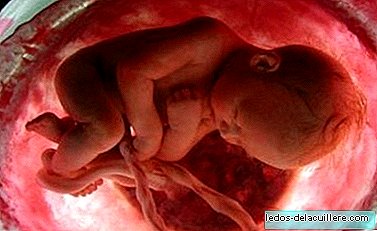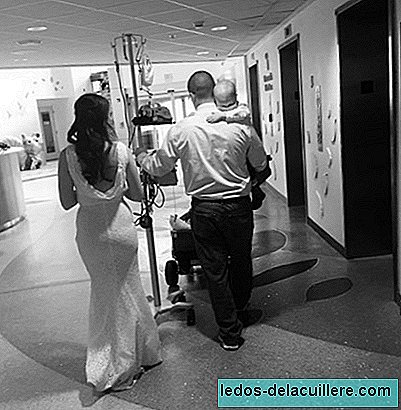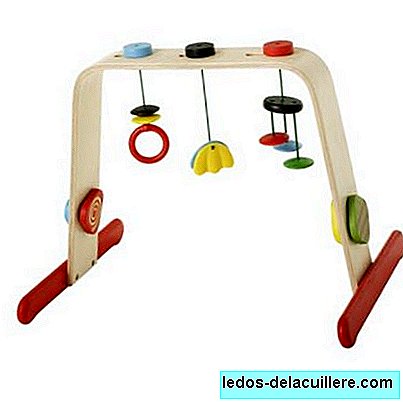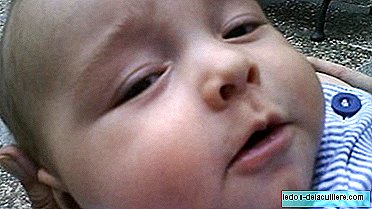
Umbilical cord blood is one of the main sources of stem cells and contains a very specific type of stem cells known as hematopoietic stem cells, which are responsible for the formation of the different components of the blood as well as constituting the immune system. Given this, there are many considerations to consider before making the decision to conserve cord blood umbilical.
We have seen some general aspects about the different conservation possibilities and health factors that can be taken into account about the risk of diseases treatable with stem cells.
We will now see the ethical implications of the decisions regarding this issue and the true effects of early cord clamping, essential for collecting the necessary blood.
Ethical considerations
There are many other things that we should know before deciding to conserve cord stem cells and opt, if we believe we should do so, for the formula that seems most appropriate, also taking into account the ethical considerations of this issue.
On the one hand, there is the ethical dilemma that donation can help other people To be cured of very serious diseases and to keep it exclusively for the baby to use it, it is not certain that it will become necessary or even serve as self-donation. Keeping blood in another country would prevent access to it even if it could save another person's life.
Is also the ethical dilemma of trade with parts of the human bodyWell, blood is. Today, however, there are other fields of research that, reasonably, can make great progress without the use of these types of stem cells for self-donations.
But on the other, and this seems more important, it remains the ethical dilemma of keeping this blood when it is natural to be destined directly to the body of the newborn. Since if we do not cut the blood from the placenta it reaches his body as he did a few minutes earlier inside his mother's body, the blood should belong to him and not to the parents or doctors. Especially since depriving him of her is not harmless.
Early clamping
To conserve sufficient cord blood, the cord must be clamped immediately after birth and then proceed to its extraction. The blood that the placenta sends through the cord to the child's body does not reach it if it is clamped and cut while the cord beats, we take it away. That is why it is an important decision to be taken with all the data.
The body does not waste energy in vain. The placenta is the organ that has fed the baby for nine months and has, once born, a last function, send oxygen to the body of the newborn while the new world is acclimatized, keeping it well oxygenated while it begins to breathe little by little.
Also, in that blood they go nutrients and a huge contribution of iron, which, depriving the child of it, will leave him with less reserves for those first days of life and, above all, with less iron in his blood, raising him to the possibility of suffering anemia during breastfeeding.
When cutting the cord we deprive the baby of very important elements for him at that time of his life, elements that he needs, not that he may need in a hypothetical future case. I speak of donations for public banks and for personal use for autotransplantation, something that remains a promise.
The consequences of clamping and cutting the cord
Although in some cases cord blood may be necessary, extending this practice seems medical and ethically very debatable. Today there are more and more centers and professionals who are aware of the importance of let the cord beat until it stops to ensure that all blood reaches the child.
But also parents have the responsibility to inform us In depth about the real consequences of drawing blood from the cord for the baby and we can decide responsibly since the law does not protect the child by not considering that blood as part of his body.
I understand that there are people who, thanks to a donation, today have been able to overcome a disease as serious as cancer. But I also think that, if we know today how important the cord blood is for the health of newborns and that the good practice is to let it beat until it stops, the responsibility should make us avoid being deprived of it and demand that other fields of research be explored, because healing adults with blood that children do not receive does not seem to me to be the best way to generalize.
Cord blood is from the baby
Cord blood is from babies, if nobody cuts the cord it will reach their body, which needs it naturally. Should we adults deprive them of it now that we know it is necessary?
I would not allow a newborn to have blood drawn from his body to cure anyone and, not to let the blood that will reach him in a few minutes do so by cutting off the system that Nature has designed to provide it with oxygen. and nutrients, it seems to me that it is not the best path nor is it completely adequate in all cases.
Today we know that the cord must beat and bring the child that blood, so it is important that parents have all the necessary information on this subject before deciding to conserve cord cellsWell, even if they do it with the best intention, perhaps the actual damage is greater than the hypothetical benefit. Did they give you all that information when you planned to donate or save cord blood?












